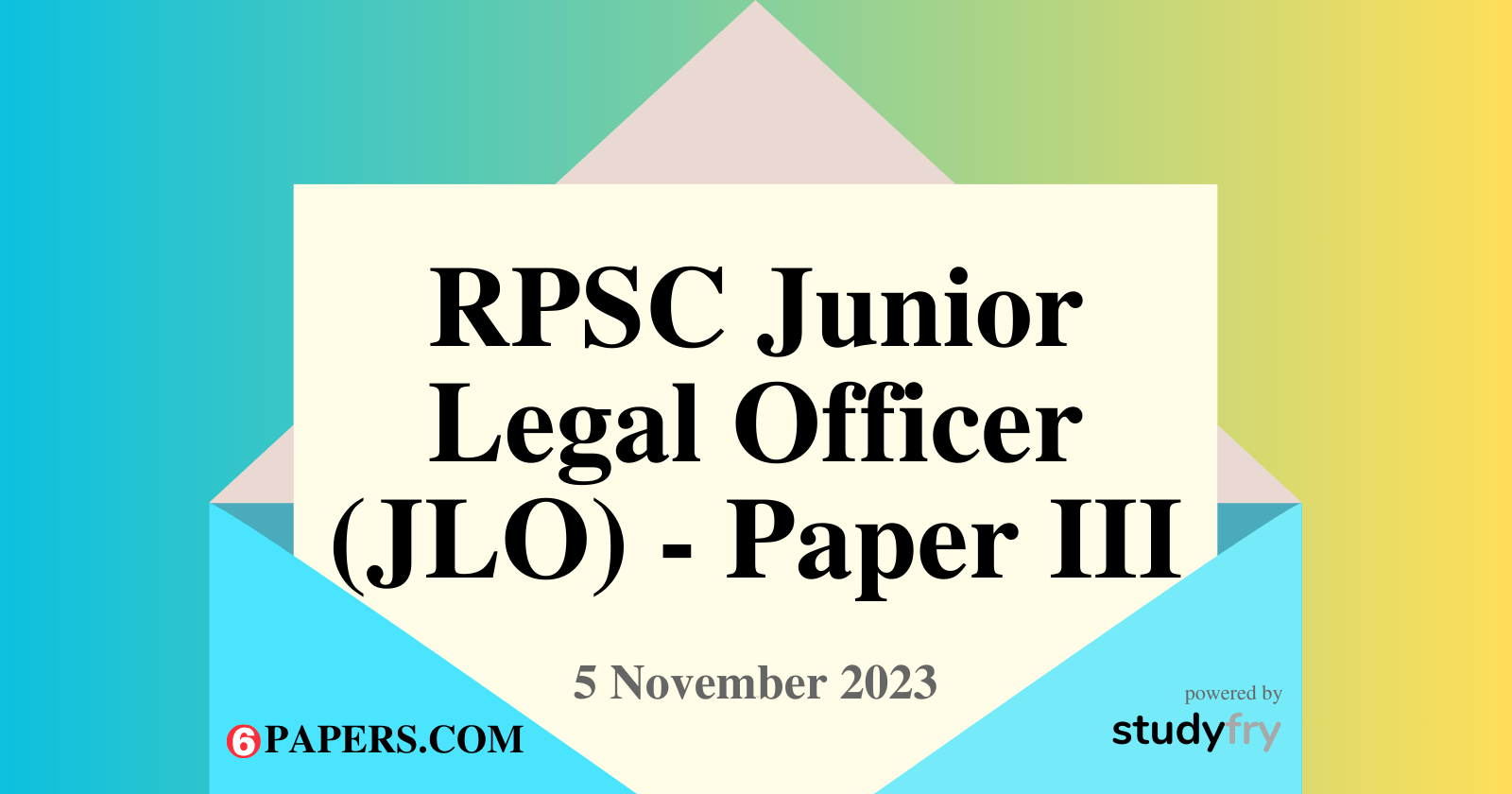61. Under the Limitation Act, 1963-
Statement (S): In computing the period of limitation for any suit the time during which which the plaintiff has been prosecuting with due diligence another civil proceeding whether in a court of first instance or of appeal or revision, against the defendant shall be excluded, where the proceeding relates to the same matter in issue and is prosecuted in good faith in a court, which from defect of jurisdiction or other cause of like nature, is unable to entertain it.
Explanation (E): A plaintiff or an applicant resisting an appeal shall be deemed to be prosecuting a proceeding.
(1) (S) is false but (E) is true.
(2) (S) is true but (E) is false.
(3) Both (S) and (E) are individually true and (E) is not the correct explanation of (S).
(4) Both (S) and (E) are individually true and (E) is the correct explanation of (S).
(5) Question not attempted
Show Answer
Hide Answer
62. How the limitation of the following is assessed? In computing the period of limitation of any suit or application for execution of a decree, the institution or execution of which has been stayed by injunction or order-
1. The time of the continuance of the injunction or order will not be excluded.
2. The time of the continuance of the injunction or order shall be excluded.
Select the correct answer using the codes given below:
Codes:
(1) None of these
(2) 1 and 2
(3) 2
(4) 1 Question not attempted
Show Answer
Hide Answer
63. Section 11 of the Limitation Act, deals with suits
(1) None of these
(2) on banking contracts
(3) on local contracts
(4) on foreign contracts
(5) Question not attempted
Show Answer
Hide Answer
64. Under the Limitation Act, 1963-
Statement (S): Where the judgment debtor has, by fraud or force, prevented the execution of a decree or order within the period of limitation, the court may, on the application of judgment creditor made after the expiry of the said period extend the period for execution of the decree or order.
Explanation (E): Provided that such application is made within three years from the date of discovery of the fraud or the cessation of force, as the case may be.
(1) (S) is false but (E) is true.
(2) (S) is true but (E) is false.
(3) Both (S) and (E) are individually true and (E) is not the correct explanation of (S).
(4) Both (S) and (E) are individually true and (E) is the correct explanation of (S).
(5) Question not attempted
Show Answer
Hide Answer
65. The effect of acknowledgement on limitation law shall be –
1. Where, before the expiration of prescribed period for a suit or application in respect of any property or right, an acknowledgement of liability in respect of such property or right has been made in writing signed by the party against whom such property or right is claimed, or by any person through whom he drives his title or liability, a fresh period of limitation shall be computed from the time when the acknowledgement was so signed.
2. Where the writing containing the acknowledgement is undated, oral evidence may be given of the time when it was signed, but oral evidence of its content shall not be received.
Select the correct statement answer using the codes given below:
Codes:
(1) None of these
(2) 1 and 2
(3) 2
(4) 1
(5) Question not attempted
Show Answer
Hide Answer
66. In which section of Indian Limitation Act, effect of death before accrual of right to sue is provided?
(1) Section 19
(2) Section 20
(3) Section 18
(4) Section 16
(5) Question not attempted
Show Answer
Hide Answer
67. In case of continuing breach of contract, the period of limitation begins –
(1) None of these
(2) at every moment of time during which the breach of contract continues
(3) from the date of last breach of contract
(4) from the date of first breach of contract
(5) Question not attempted
Show Answer
Hide Answer
68. Which section of Limitation Act deals with Gregorian Calendar?
(1) Section 32
(2) Section 26
(3) Section 25
(4) Section 24
(5) Question not attempted
Show Answer
Hide Answer
69. Under which section of Limitation Act acquisition of prescription is provided? easement by
(1) Section 24
(2) Section 30
(3) Section 28
(4) Section 25
(5) Question not attempted
Show Answer
Hide Answer
70. Order VI, Rule 16 of Civil Procedure Code deals with
(1) Striking of Pleadings
(2) Amendment of Pleadings
(3) Verification of Pleadings
(4) Presumptions of Law
(5) Question not attempted
Show Answer
Hide Answer


Leave a Reply